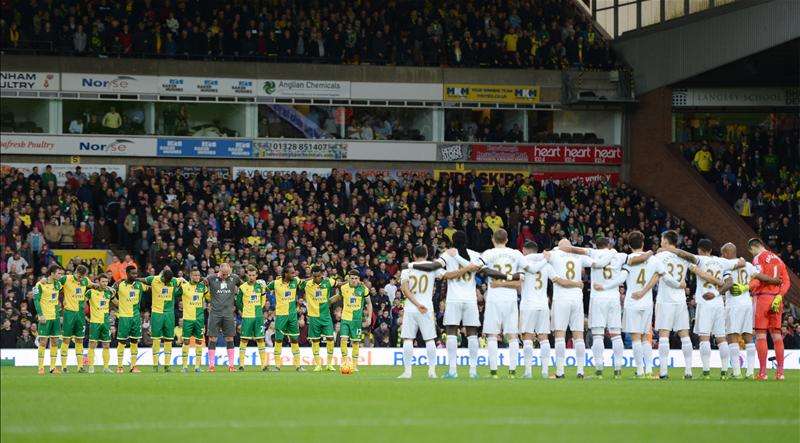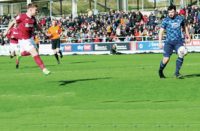To commemorate Armistice Day we look back at how football in Britain was affected by World War I.
Despite the First World War being declared in August 1914, both the Football League and the FA Cup continued until the end of the 1914-15 season.
Although the FA received criticism from some politicians for not suspending competitive football earlier, clubs helped to organize several successful recruitment initiatives at matches throughout the season.
In October 1914, Arthur Conan Doyle made an impassioned appeal for professional footballers to sign up for military service.
“There was a time for all things in the world. There was a time for games, there was a time for business, and there was a time for domestic life. There was a time for everything, but there is only time for one thing now, and that thing is war.
“If the cricketer had a straight eye let him look along the barrel of a rifle. If a footballer had strength of limb let them serve and march in the field of battle,” said the famous author.
Conan Doyle's comments had a big effect and a new regiment known as The Football Battalion was created to incorporate the large influx of footballers joining the army. For example, on 26th November the entire Hearts team decided to enlist.
As the season dragged on, more players and fans left Britain to join the armed forces overseas. This led to declining attendances and depleted teams.
By springtime the Football League had began to fall into disarray and scandal broke out after it was discovered Manchester United's victory over Liverpool on Good Friday had been fixed.
That same season, Everton ended up pipping Oldham to the 1915 Division One title and Sheffield United defeated Chelsea to win the FA Cup final at Old Trafford.
After the final, Lord Derby got the two sets of players together and told them competitive football would now be suspended until the end of the war.
He told the players: “You have played with one another and against one another for the Cup. It is now the duty of everyone to join with each other and play a sterner game for England.”
Although the Football League and FA Cup had been suspended, amateur regional football leagues were set up across the country between 1915 and 1919.
These amateur leagues provided welcome relief from the pains of wartime life in Britain and helped to lift community spirits.
The first footballer to join the Football Battalion was former England centre-back Frank Buckley. After joining in 1914, Buckley worked hard to attract new recruits and helped the Battalion to quickly grow in numbers.
By January 1916, the Football Battalion was ready for front line action.
Under the stewardship of Buckley, who had been promoted to Lieutenant, the Battalion played a big part in the Somme offensive, where they suffered heavy causalities.
In 1917, former Tottenham Hotspur midfielder William Tull was also promoted to Lieutenant and in the process became the first black officer in the British army.
By the end of the war around 500 of the original 600 members of the Football Battallion had been killed, including Tull who died after being hit by a German bullet in March 1918.
Despite being injured in action, Frank Buckley survived and after returning home he had a hugely successful managerial career with both Wolverhampton Wanderers and Leeds.
On this day of remembrance it is fitting that the actions of the brave Football Battalion are recognized.

















